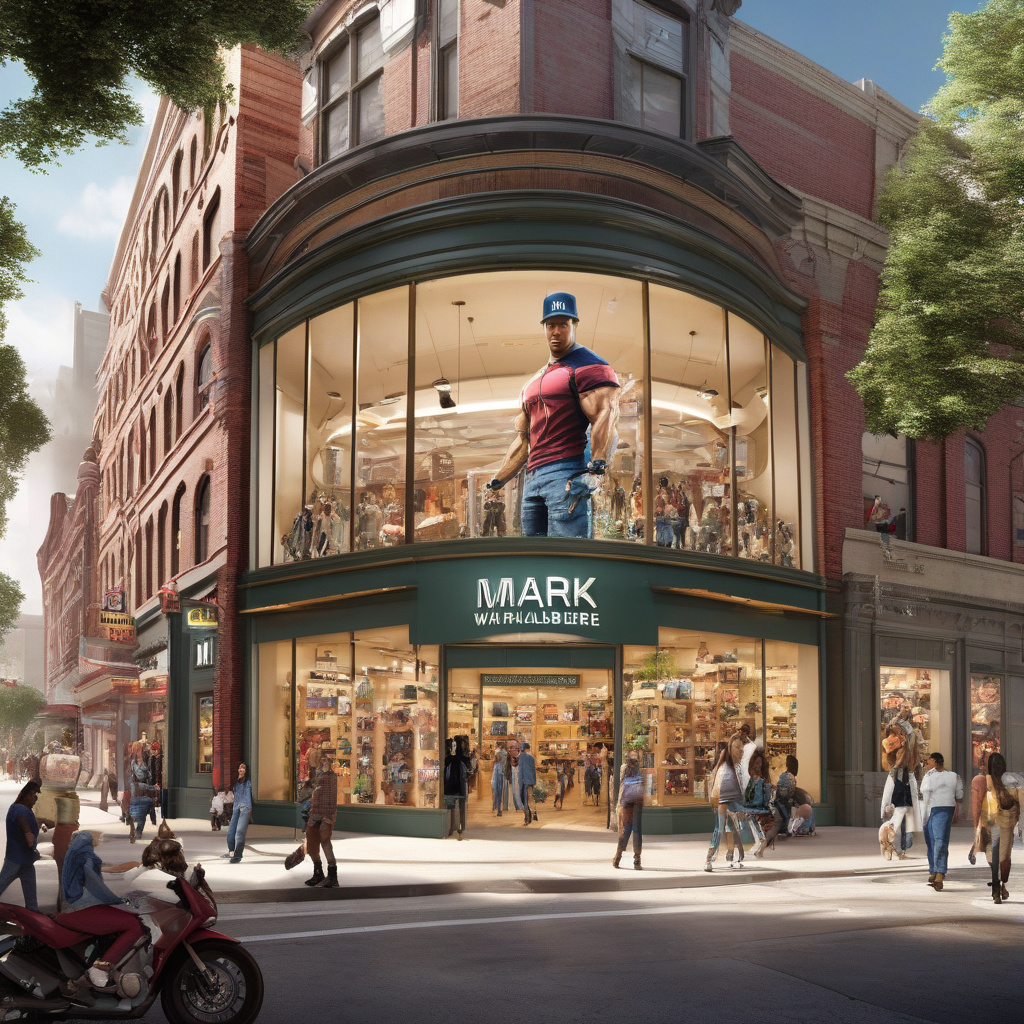Mark Wahlberg’s Apparel Brand Municipal Aims to Create ‘A Muniverse’ of Stores, Cafes, and Gyms
Mark Wahlberg, a well-known figure in both Hollywood and the business world, is not only an accomplished actor and producer but also the co-founder of the activewear brand Municipal. The brand is making significant strides in its evolution from a traditional apparel line into a comprehensive lifestyle company. This ambitious vision is encapsulated in the concept of creating a ‘Muniverse’—a network of interconnected stores, cafes, and gyms that aim to enhance the customer experience and diversify revenue streams.
Municipal was initially launched with a focus on high-quality activewear, designed to cater to individuals leading an active lifestyle. Since its inception, the brand has carved a niche in the competitive apparel market by emphasizing functionality and style. However, the co-founders recognized that merely selling clothing was not enough to sustain growth and profitability in today’s retail environment. As a result, the brand is poised to expand its horizons, transforming into a lifestyle brand that resonates with consumers on multiple levels.
The concept of a ‘Muniverse’ reflects a strategic shift toward creating community-centered spaces that go beyond the transaction of goods. Imagine walking into a Municipal store, not just to shop for activewear but to immerse yourself in a holistic lifestyle experience. The vision includes cafes serving nutritious meals and drinks that align with the health-conscious ethos of the brand, as well as gyms that offer fitness classes and training sessions led by experienced instructors. This multifaceted approach fosters a sense of community and promotes customer loyalty, which is essential in today’s competitive market.
One of the key benefits of this model is the potential for increased customer engagement. By offering more than just apparel, Municipal can attract a wider demographic of consumers who value experiences as much as products. For example, a customer who comes in for a workout might end up purchasing activewear after attending a fitness class at the Municipal gym. This cross-pollination of services can lead to higher sales while also enhancing brand visibility.
Moreover, the lifestyle approach aligns perfectly with current market trends where consumers are increasingly seeking brands that reflect their values and lifestyles. According to a report by McKinsey, the global sportswear market is projected to reach approximately $200 billion by 2025, driven by trends in health, wellness, and fitness. By tapping into this lucrative market, Municipal is positioning itself as a frontrunner in the evolution of retail, where the focus is on customer experience and community building rather than solely on product sales.
Municipal’s plans to create gyms and cafes will also allow for innovative marketing strategies. By integrating their products into the lifestyle of their customers, the brand can utilize social media as a powerful tool for engagement. Fitness influencers and brand ambassadors can promote Municipal’s offerings while showcasing their active lifestyles, creating a strong online presence that resonates with potential customers. This kind of grassroots marketing can amplify brand awareness, particularly among younger consumers who are heavily influenced by social media trends.
Furthermore, the physical experience of shopping is being redefined in the age of e-commerce. Consumers are increasingly drawn to unique, experiential shopping environments where they can interact with brands in meaningful ways. A Municipal store that doubles as a community hub—a place where people can gather, workout, and socialize—could significantly enhance foot traffic and customer loyalty. For instance, hosting fitness events, workshops, and community challenges can turn the store into a local landmark, making it a go-to destination for fitness enthusiasts.
However, venturing into this new territory will not come without challenges. Municipal must carefully consider the logistics of expanding its product offerings while maintaining the quality and brand integrity that consumers expect. Additionally, the financial implications of opening gyms and cafes require thorough planning and investment. The company will need to ensure that these new ventures are sustainable and can operate profitably alongside its existing apparel line.
To mitigate these risks, Municipal could consider partnerships with established fitness brands or local health food cafes to leverage their expertise and reduce initial overhead costs. Collaborations can provide a fast track to entering the market while allowing Municipal to focus on brand development and building a loyal customer base.
In conclusion, Mark Wahlberg’s Municipal is setting its sights on becoming more than just an activewear brand. By creating a ‘Muniverse’ of interconnected stores, cafes, and gyms, the brand aims to foster a lifestyle that resonates with its customers’ values and aspirations. This strategic expansion not only positions Municipal to capitalize on the lucrative sportswear market but also enhances customer engagement and community building—key components for long-term success in the retail landscape.
#MunicipalBrand, #MarkWahlberg, #LifestyleCompany, #Activewear, #RetailInnovation
